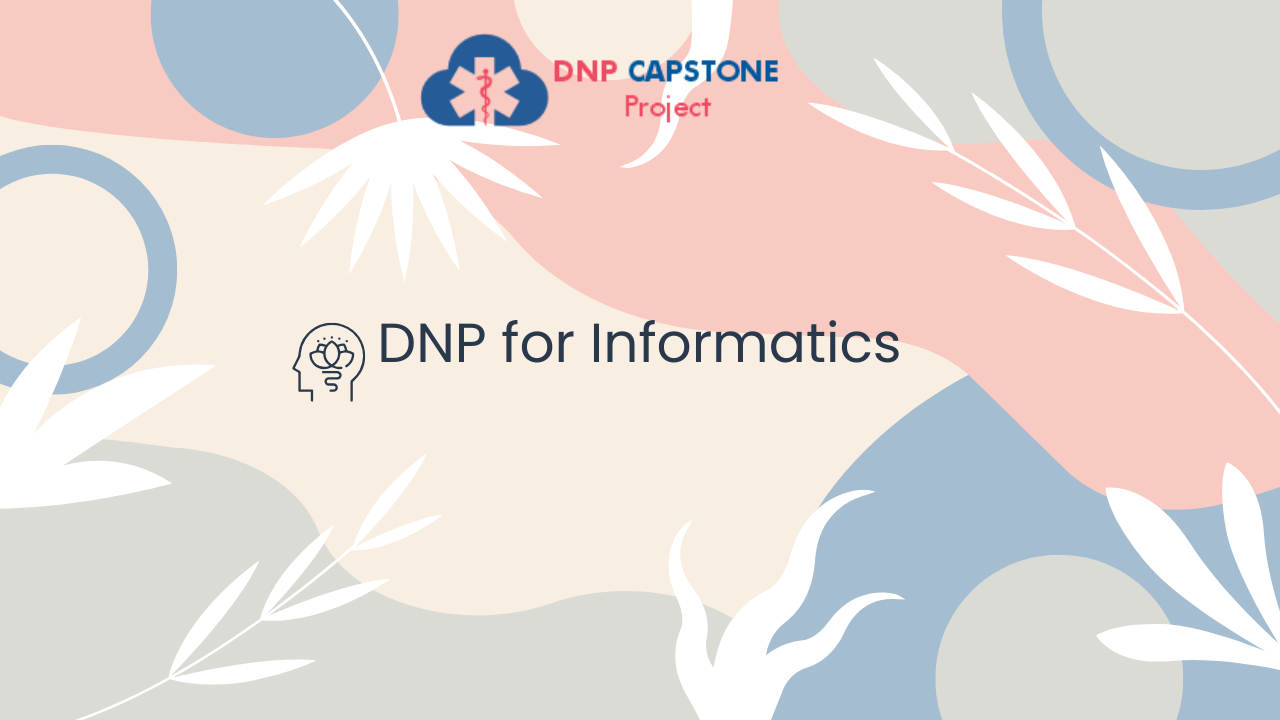DNP in Informatics: Bridging Healthcare and Technology
In an era where healthcare and technology are increasingly intertwined, the Doctor of Nursing Practice (DNP) in Informatics is emerging as a transformative degree. This advanced practice doctoral program empowers nurses to lead healthcare innovation through data-driven decision-making, system design, and clinical technology integration.
Whether you’re a nurse seeking leadership in informatics or an organization looking to stay ahead in digital healthcare, understanding the DNP in Informatics is essential.
What Is a DNP in Informatics?
The DNP in Informatics is a terminal nursing degree focused on the application of informatics, data science, and health information systems to improve patient care and healthcare outcomes.
Unlike a Ph.D., which emphasizes research, the DNP is practice-focused. It prepares nurses to apply evidence-based research, lead digital transformation projects, and influence policy using informatics tools.
Core Components of a DNP Informatics Program
DNP Informatics programs generally combine nursing leadership, clinical practice, and health IT coursework. Key curriculum components include:
-
Clinical Information Systems
-
Data Management & Analytics
-
Population Health Informatics
-
Human Factors & Usability
-
Health Policy & Ethics
-
Project Management
-
Implementation Science
Most programs also require a DNP Scholarly Project—an evidence-based initiative designed to improve practice or outcomes using informatics solutions.
Why Pursue a DNP in Informatics?
1. Leadership in Healthcare Technology
Graduates are equipped to lead hospital IT departments, implement EHR systems, and evaluate digital health tools for clinical effectiveness.
2. Improving Patient Outcomes
Using data analytics, DNPs in Informatics can identify trends, reduce errors, and personalize patient care.
3. Policy and Advocacy
DNPs often influence health IT policy, ensuring systems are patient-centered and clinically effective.
4. Lucrative and Growing Career Path
Health informatics is among the fastest-growing fields. DNPs in Informatics often secure roles such as:
-
Chief Nursing Informatics Officer (CNIO)
-
Clinical Systems Analyst
-
Health IT Project Manager
-
Informatics Consultant
-
Nursing Faculty or Researcher
Career Outlook and Salary
According to the Bureau of Labor Statistics and industry reports:
-
Job Growth: Projected 17% growth in healthcare IT roles through 2033
-
Salary: Average salary ranges from $105,000 to $160,000+, depending on role and experience
-
Top Employers: Hospitals, government agencies, universities, health tech companies, and consulting firms
Who Should Consider a DNP in Informatics?
This degree is ideal for:
-
Experienced RNs or APRNs with a passion for technology
-
Nursing leaders looking to drive organizational change
-
Nurse educators aiming to teach or lead in informatics programs
-
Nurses with MSN degrees who want to pursue a terminal practice degree with a digital focus
DNP Informatics vs. MSN Informatics: What’s the Difference?
| Feature | MSN in Informatics | DNP in Informatics |
|---|---|---|
| Focus | Entry to mid-level roles | Executive & leadership roles |
| Duration | 2 years (full-time) | 2–4 years (with project) |
| Outcome | Specialist | Advanced Practice Leader |
| Scholarly Project | Not required | Required |
How to Choose the Right Program
When selecting a DNP Informatics program, consider:
-
CCNE or ACEN Accreditation
-
Online vs. In-Person Format
-
Clinical Hour Requirements
-
Faculty Expertise in Informatics
-
Partnerships with hospitals or IT vendors
-
Alumni outcomes and career support
Final Thoughts
The DNP in Informatics is more than a degree—it’s a strategic step into the future of healthcare. By combining nursing expertise with advanced data and technology skills, DNP-prepared informatics nurses are leading the charge toward smarter, safer, and more efficient healthcare delivery.
Whether you’re driven by a passion for improving systems or shaping the future of digital healthcare, the DNP in Informatics offers the platform to make a lasting impact.



